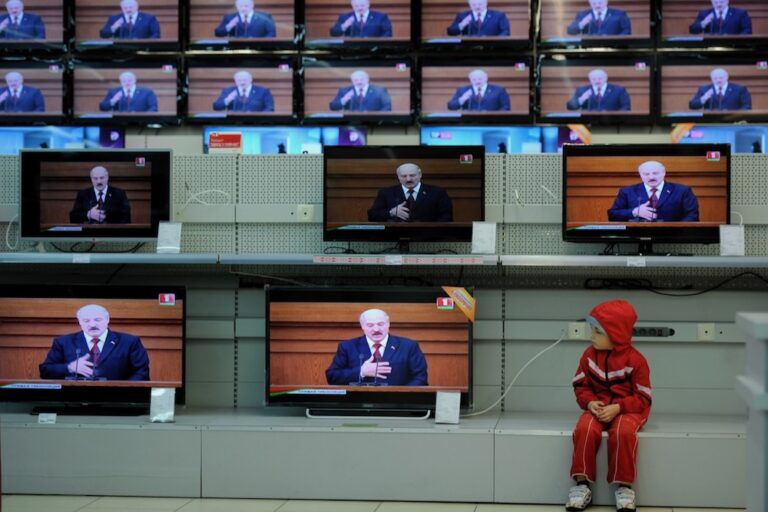(RSF/IFEX) – RSF has condemned the 24 March 2005 seizure of four computers and printing equipment from the independent weekly “Zhoda” by plainclothes members of the Belarusian KGB and local police. The Minsk-based newspaper, which has a circulation of 5,000, is accused of illegally installing its offices in an apartment. “The authorities are yet against […]
(RSF/IFEX) – RSF has condemned the 24 March 2005 seizure of four computers and printing equipment from the independent weekly “Zhoda” by plainclothes members of the Belarusian KGB and local police. The Minsk-based newspaper, which has a circulation of 5,000, is accused of illegally installing its offices in an apartment.
“The authorities are yet against using spurious arguments to stifle the few independent newspapers trying to survive in Belarus,” RSF said. “Whatever the size of its circulation, the authorities will do everything possible to ensure that a newspaper disappears if they decide it is subversive.”
“We are concerned about the constant deterioration in press freedom in Belarus and we point out that President Alexander Lukashenko is on our worldwide list of predators of press freedom,” the organisation added.
The plainclothes KGB officers and police from Minsk’s Parizansky district had no warrant and introduced themselves only as a “group of investigators” when they arrived at the apartment the newspaper uses as its office at about 11:00 a.m. (local time). After staying for about three hours, they ordered the newspaper’s editor-in-chief, Alexei Karol, to report to the local police station.
“The plainclothes KGB officer in charge, who refused to give his name, said the newspaper was regarded as subversive and being against the president, and that he was acting on a complaint that had been brought against ‘Zhoda’,” Karol said.
“I’m sure he was alluding to interviews with opposition members Alexander Kozuline and Andrei Klimov that we published recently,” Karol added. The KGB officer also said the newspaper was suspected of “violating economic legislation.”
“Zhoda” was previously closed by the Information Ministry for a month, from 5 February to 5 March, on the grounds that the address it was registered under was different from the one being used by the journalists to produce the newspaper. The seizure of the four computers means the paper may be unable to put out its next issue.


